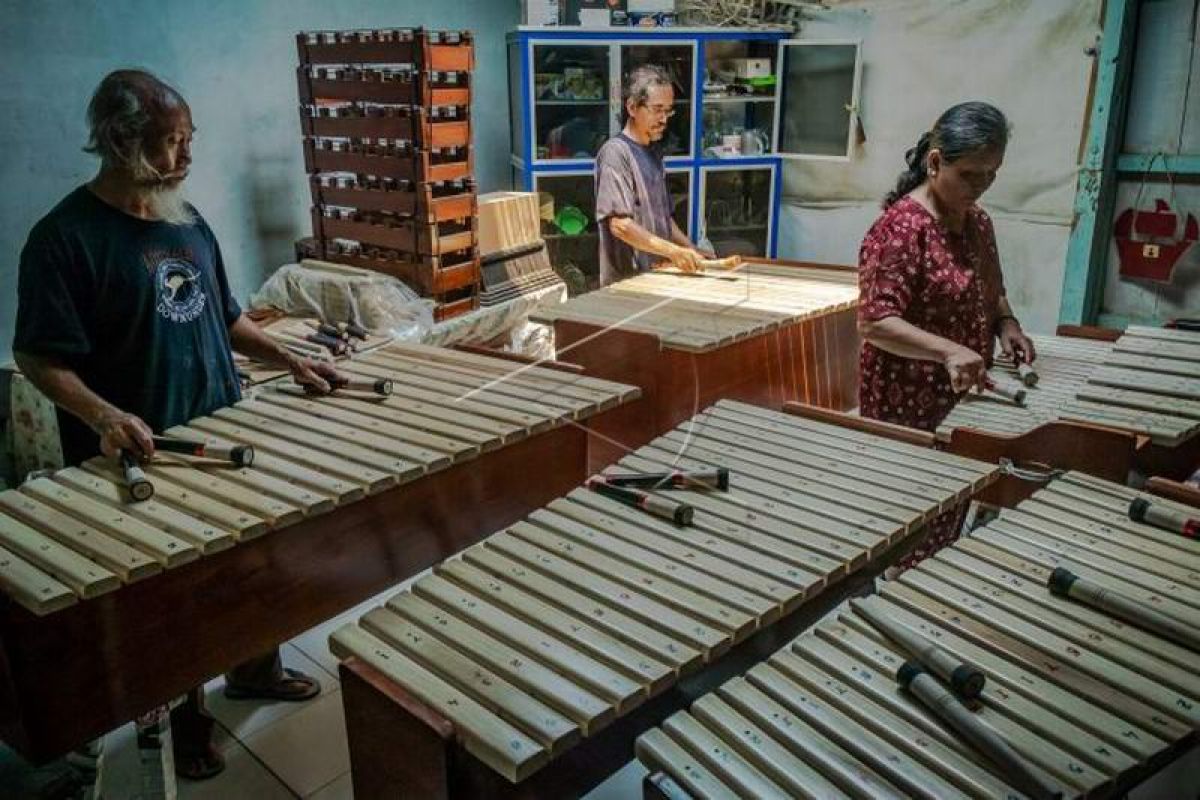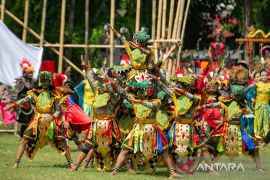What we need to think about is what we are going to do with a cultural heritage after it is proposed to UNESCOJakarta (ANTARA) - Indonesia is striving to get its traditional musical instrument kolintang recognized by the United Nations Educational, Scientific and Cultural Organization (UNESCO) as an intangible cultural heritage, the Education, Culture, Research, and Technology Ministry stated.
Kolintang is a musical instrument made of wood from Minahasa, North Sulawesi Province.
The ministry's director of cultural protection, Judi Wahjudin, stated when contacted in Jakarta on Saturday that initially, the government had sought to propose the inscription of kolintang on the list through the single nomination scheme.
However, the government decided to change its plan after finding that a similar musical instrument from West Africa, called balafon, has already been recognized as an intangible cultural heritage by UNESCO.
"Since a similar musical instrument has been registered, we switched to fighting for the recognition of kolintang as UNESCO's intangible cultural heritage through the extension scheme, meaning that we are seeking to incorporate kolintang into the same musical instrument group (with balafon)," he elaborated.
Wahjudin affirmed that the government's resolve to register kolintang as UNESCO's cultural heritage was not meant to lay a claim on a culture of a country, but it serves as proof of Indonesia's commitment to jointly preserving cultural heritages with other nations.
"What we need to think about is what we are going to do with a cultural heritage after it is proposed to UNESCO. Hence, this can be seen as a sign of a joint commitment," he affirmed.
Furthermore, Wahjudin noted that UNESCO is currently promoting the scheme of joint nomination, or extension, to countries keen on registering their cultural heritages in addition to the single nomination scheme that has a biennial registration period.
''Hence, it (the joint nomination scheme) does not seek to let a country lay a claim on a cultural heritage of another country. Instead, it allows countries to inscribe their cultural heritages that contain universal values into a single group," he explained.
He also elaborated that for a cultural heritage to be recognized by UNESCO, it must have at least one maestro, a community that is preserving its existence, and it should also be remembered by two generations.
As for a cultural heritage proposed through the joint nomination scheme, it must contain universal values, he added.
Related news: UNESCO designates Yogyakarta Philosophy Axis as world heritage
Related news: Indonesia enhances capacity of underwater cultural heritage personnel
Related news: UNESCO proposes Bahasa Indonesia as official UN language
Translator: Hana D, Tegar Nurfitra
Editor: Sri Haryati
Copyright © ANTARA 2023












